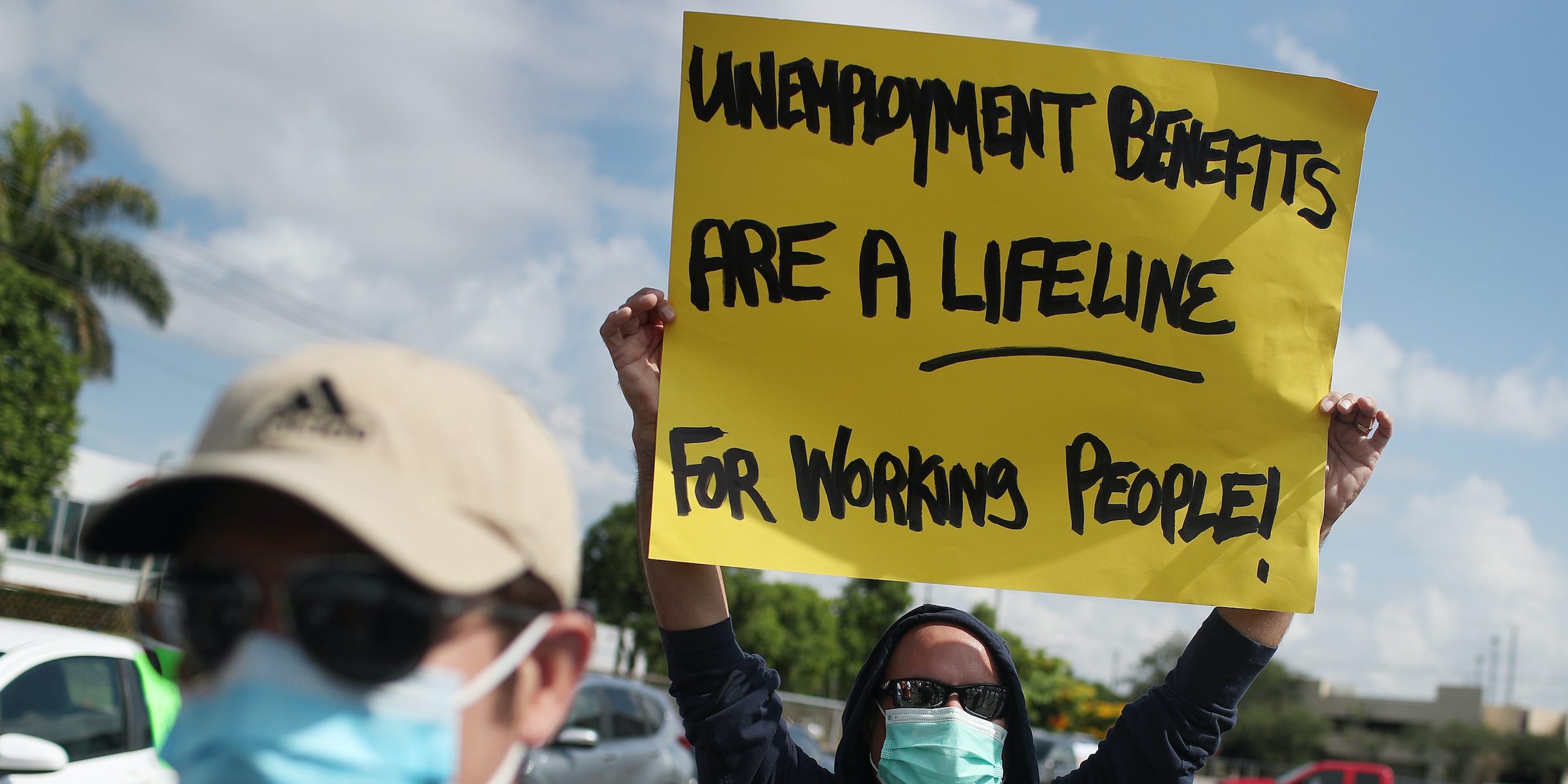
Joe Raedle/Getty Images
- A new report found that 11.4 million workers will lose unemployment aid if Congress doesn’t pass a stimulus package before March 14.
- Delays in providing aid after the December stimulus package cost workers over $17 billion in benefits.
- The House Ways and Means Committee proposed extending benefits through August instead of September, which lawmakers and experts say is not sufficient.
- Visit the Business section of Insider for more stories.
Unemployment benefits will expire in mid-March if Congress does not pass a stimulus package before then, putting 11.4 million Americans at risk of losing needed aid.
As part of his $2 trillion stimulus proposal, President Joe Biden called on Congress to extend unemployment benefits through the end of September and provide $400 weekly benefits to unemployed Americans. The House Ways and Means Committee’s stimulus bill unveiled on Monday included Biden’s proposed $400 weekly benefits, but those benefits would end on August 29. Regardless of the proposal to extend the benefits, key jobless aid measures will expire on March 14 if Congress does not pass a stimulus package before then.
In a report released on Wednesday by The Century Foundation – a progressive, nonpartisan think tank – it found that 11.4 million American workers will lose their unemployment benefits between March 14 and April 11 without a new pandemic relief package.
“The jobless benefits passed in the December stimulus package are responsible for lifting more than 7 millions Americans out of poverty in January, but Americans will need strong unemployment benefits to be in place through at least the end of September if they are to weather the storm of the pandemic,” the report said.
Here are the main findings of the report:
- 4.05 million workers will see their unemployment benefits end immediately on March 14, 11 weeks after receiving benefits from the December stimulus package;
- 7.32 million workers will see their benefits end sometime between March 14 and April 11;
- States with large populations, like New York, California, and Pennsylvania, will bear the biggest brunt of the benefits cutoff, with more than 10% of the labor force in those states potentially impacted;
- And at the end of the "soft cliff" on April 11, only 12 states will be added onto the federal Extended Benefits program, meaning that only 700,000 workers will be eligible for benefits after the temporary programs expire.
Delays in providing unemployment aid cost jobless workers over $17 billion in benefits in the first four weeks of January, which had dire implications for families struggling with food insecurity and rent payments.
Toby Malara, a government affairs counsel at the American Staffing Association - a trade association that represents the American workforce - told Insider that extended unemployment insurance is vital to help workers recover from the pandemic.
"Way too many Americans right now are in desperate need of unemployment insurance assistance and would be in a lot of trouble come March, middle of March, if they expired," Malara said.
And in a new analysis from the Center on Budget and Policy Priorities, it said that the Ways and Means proposal to extend benefits through August, rather than September, is insufficient given that Congress is typically not in session at the end of August, so there would be a benefits lapse.
Sen. Ron Wyden of Oregon expressed discontent with the proposal to extend benefits for only five months and said on Twitter that he will fight to preserve six months of unemployment benefits.
"Congress doesn't have to choose between providing income for jobless workers and direct checks," Wyden said. "Democrats can and must do both."
Speaker of the House Nancy Pelosi said she aims to get a pandemic relief package passed at the end of February, but it remains dependent on how quickly Congress can vote on stimulus measures.